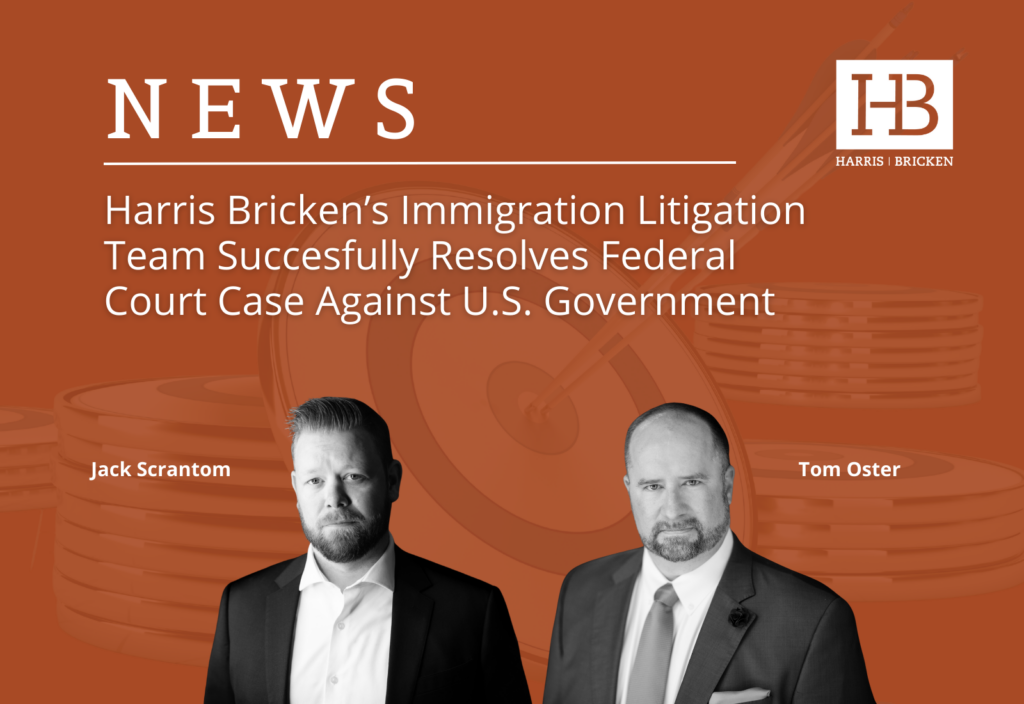We’re thrilled to share that we recently achieved a favorable settlement with the U.S. Attorney’s Office for the district of Alaska in an Administrative Procedure Act (APA) claim against the U.S. Citizenship and Immigration Services (USCIS) and the U.S. Department of Homeland Security (DHS) for one of my law firm’s employment-based immigration clients.
USCIS had failure to provide notice
In our case, our immigration litigation lawyers (Jack Scrantom and Tom Oster) contended that USCIS had failed to provide notice to our client of its intent to revoke (NOIR) our client’s approved immigrant petition for alien worker (I-140) or its revocation (NOR). The Immigration and Nationality Act (INA) requires USCIS provide immigrant visa (IV) petitioners these notices of alleged deficiencies in I-140 petitions so petitioners have an opportunity to respond to USCIS by confirming their eligibility or strengthening their pending petition.
The employee in our case has been lawfully living and working in the U.S. since 2012 and he raised a family here. Though his petitioning employer was never notified that USCIS intended to or had revoked the I-140 petition, the employee was notified that his application to adjust status (AOS) to a lawful permanent resident (LPR) had been denied. This was the first time either the employer or the employee heard of the IV revocation. AOS applications must be predicated on an approved IV petition and if the predicate IV petition is revoked, USCIS will then deny the pending AOS application. Foreign nationals lawfully in the U.S. with an approved IV petition may file an AOS application that allows them to live and work in the U.S. while USCIS adjudicates the AOS.
Our attorneys handling this case were concerned that once the AOS was denied, the employee and his family would accrue “unlawful status”. Under the INA, a foreign national who accrues more than 180 days of unlawful status in the U.S. is inadmissible to the U.S. for a three-year period. The same provision of the INA provides that foreign nationals unlawfully present in the U.S. for a period of more than 365 days are inadmissible for a 10-year period. Foreign nationals in unlawful status are subject to deportation and removal proceedings by the DHS. At the time our immigration litigation team was engaged to pursue APA remedies, nearly half of the 180-day period had already elapsed. We needed to move quickly to prevent removal proceedings from being initiated before we filed the complaint, and we did.
Complaint and a motion for Temporary Restraining Order
We filed our complaint and a motion for Temporary Restraining Order (TRO) against the United States government, asserting that USCIS’s revocation of the IV petition had been unlawful because the petitioning employer had not been given its statutorily-mandated opportunity to respond to the NOIR and NOR. We also asserted that the government’s failure to provide the required notice made USCIS’s denial of our client’s AOS application unlawful. We requested the federal court prohibit DHS from initiating removal proceedings against our client until the conclusion of the APA proceedings.
Within ten days of our filing the complaint and motion for TRO (and before any hearings were necessary) we convinced the U.S. Attorney’s office and USCIS to reopen both the I-140 petition and the AOS application.
Though USCIS actions had clearly been unlawful, there were no administrative remedies available to our client. Our only option for obtaining fair and equitable treatment from the government was to file a lawsuit. That required our immigration team and our litigation team work together to get our client’s immigration status back on track by insisting the U.S. government follow the same laws it enforces.

























